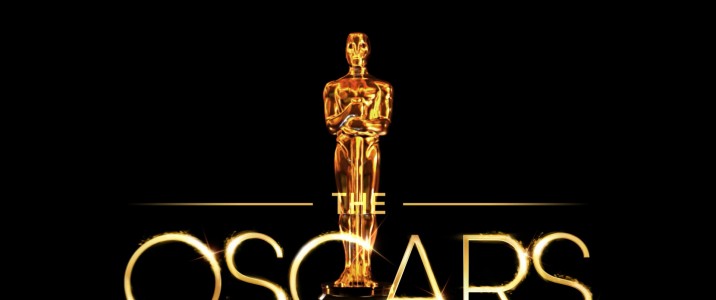Alex and Nick take a good, long look at this year’s Oscar nominees and try valiantly to determine if their personal picks will align with the Academy’s.
Nick: What is, if anything, going to be most memorable for you about the year 2016 for the Oscars?
Alex: For me, what I think is going to be most memorable is the duet between Rob Lowe and Snow White
N: God, I hope not. That’s the last thing they need after #Oscarssowhite
A: They can just call it “#OscarsSnowWhite”
N: …
- Best Picture
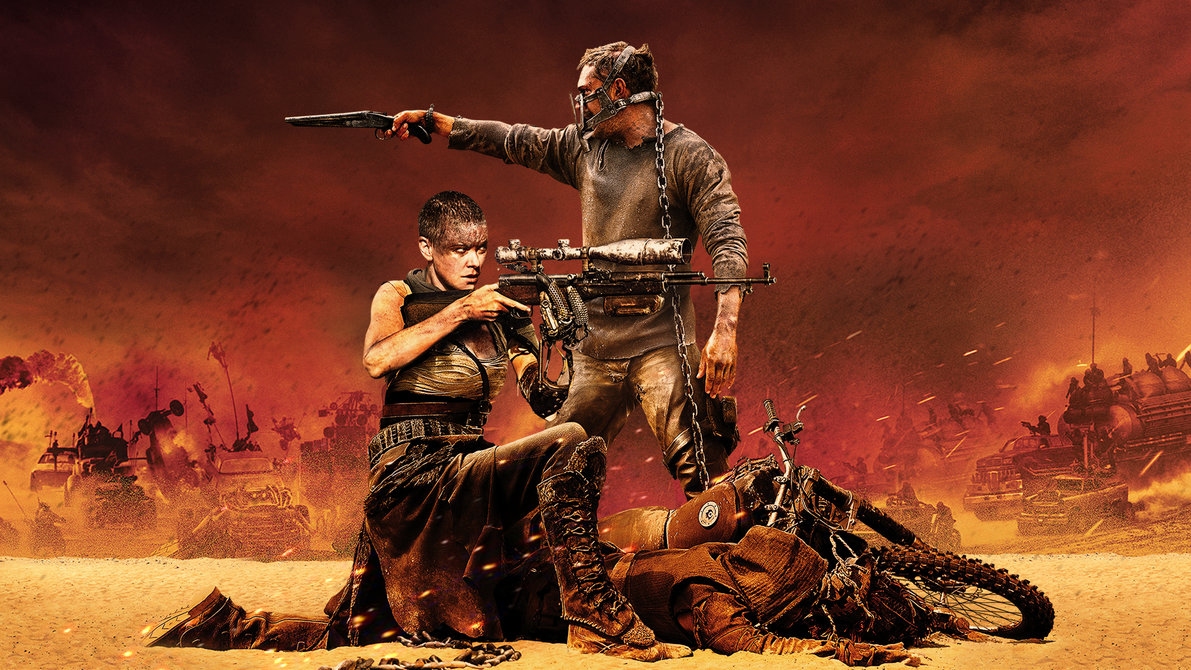
A: But seriously, what I think people are going to remember chiefly is The Revenant, primarily because it looks most likely to win Best Picture at this point. There will be two basic camps; those who are vocal supporters and will call it a classic and then there will be those who find it a little overrated. It’s like how GoldDerby described it as the next Dances with Wolves or something. But I really think the film that will stand out the longest in people’s memories is Mad Max: Fury Road, in my opinion.
N: Well, I guess it’s safe to say that the general consensus between both of us, in terms of Best Picture, is that Mad Max would be the clear winner.
A: Oh, no contest. And we’ve had a solid year for movies like Spotlight, and The Big Short, and even films that weren’t nominated like Carol.
N: Absolutely, and I think, to me, the snub of Todd Haynes’ film was one of the most egregious snubs the Academy made this year because I think it’s one of the most deceptively brilliant films of last year, in terms of its potent political subtext mired within this bygone aesthetic that I think many voters didn’t pick up on. They took note of the superb costume work and performances but didn’t seem savvy enough to notice the, in many ways, damning social critique the film provides of the American social strata.
A: Yeah, and it’s ironic considering the film received six nominations, not one of which was for its director.
N: Todd Haynes?
A: Yes.
N: I couldn’t agree more.
- Best Director

N: And I think that’s a great place to segue into the Best Director category, because you’ve seen all of the nominees. And, firstly, who do you think is going to win?
A: I believe it’s going to be Alejandro Gonzalez Innaritu for The Revenant, because it’s the narrative people are talking about. Innaritu and his crew braved the elements, shot in natural light and freezing weather, and they managed to pull this off and make this movie. It’s a miracle.
N: And a critical and commercial success as well. I think you make a salient point here that Innaritu’s victory here, if he does win, and I think he stands a very good chance with all of the precursors that he’s garnered, I think it will be a testament to this narrative as well as the film’s pretense of artistic merit that it exhibits in, I would say, an almost pompous manner. I won’t fault Innaritu for his ambition, but simply because a film is difficult to make does not necessarily mean it deserves an award. If we are looking by that standard, then why is George Miller any less deserving?
A: Exactly. He shot the majority of his film in 2012, had to do pickup shoots and re-shoots in 2014 following some test screenings. It went over schedule and there was a lot of tension on the set. Poor Tom Hardy and Charlize Theron didn’t quite know where the whole thing was going.
N: Right, but setting aside how difficult it is– because we all know how difficult it is to make a film, one should regard how Mad Max: Fury Road is directed with such an onslaught of perfectly choreographed imagery, including but not limited to the Doof Warrior playing his guitar. I don’t think there’s an image quite like that in recent cinema that captures the rampant machismo synonymous with this patriarchal mindset that, quite frankly, has dominated the blockbuster for time immemorial. So I think there’s something to be said for it not only being difficult to make, but furthermore as a film that manages to operate on a number of levels, from subtext to visceral impact.
- Best Actor
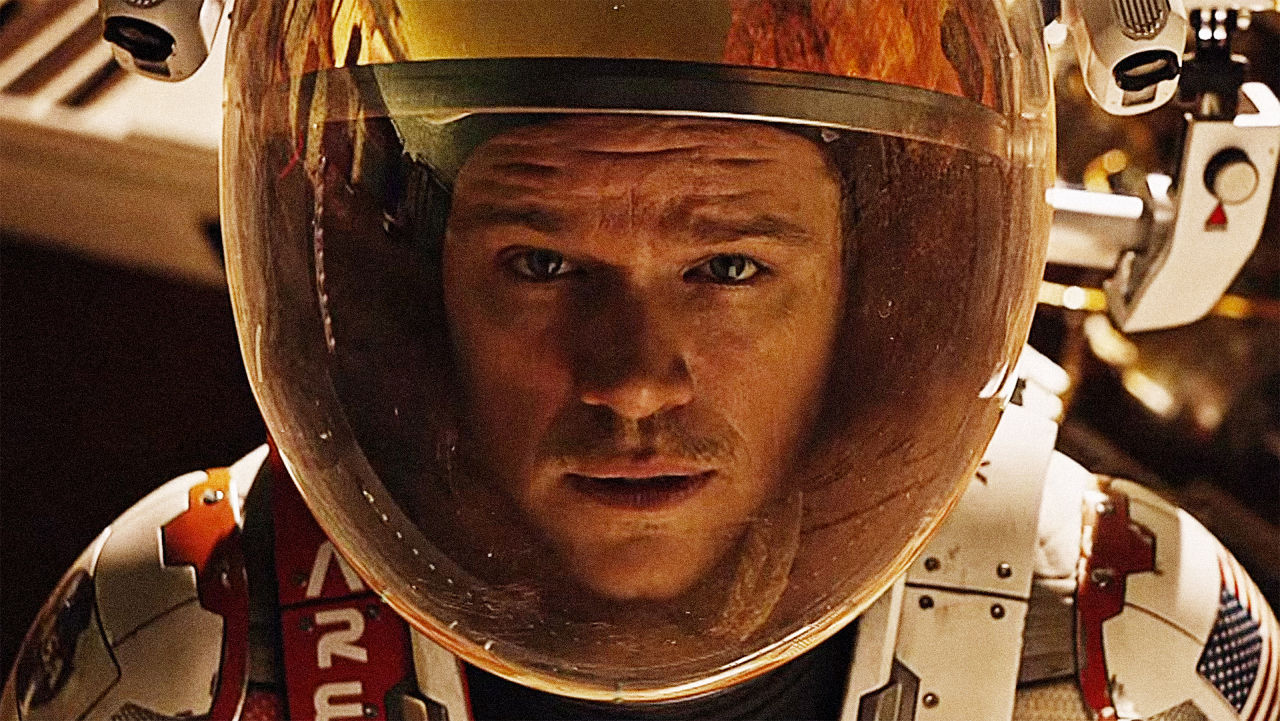
N: Speaking of narratives, I think it’s safe to say that there hasn’t been one as constant throughout this whole, wacky season as Leonardo DiCaprio finally winning his Oscar. I’m not a gambling man, but I wouldn’t bet against him winning. It’s too irresistible. The man’s been nominated, I want to say, five times?
A: Yes.
N: Okay, five times he’s been nominated. I think he’s garnered a lot of goodwill from the industry over the years. But the thing is, I don’t think it should necessarily be whoever generates the most intriguing narrative, though that certainly does affect the outcome, but rather who should win. And, truth be told, I’ve only seen three of the awards here.
A: As have I.
N: And while I’m not terribly passionate about either Matt Damon or Michael Fassbender, I think both gentlemen have given commendable performances. And if I had to pick one, I would probably lean towards Damon for The Martian, because I feel the film itself, while solidly crafted and handsomely mounted, wouldn’t have a heart if it didn’t have Damon at its center. He is holding the entire thing together, in many respects.
A: And I think Damon is one of those actors who can elevate the material he’s given. Like, I know some people who have reacted to the way he grapples with this harrowing situation with a sense of humor feeling a little uncertain. But I think he imbues enough credibility and sincerity into his performance that you buy it.
- Best Actress
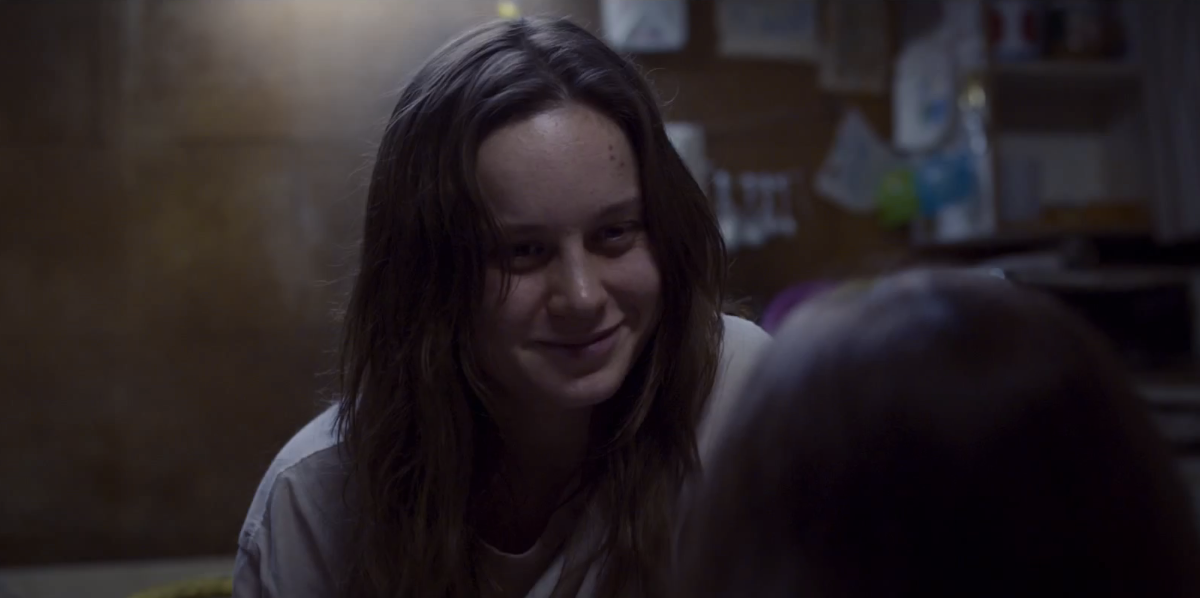
N: In terms of Best Actress, I think Brie Larson is a safe bet.
A: Absolutely.
N: But do you think she deserves it?
A: I think so. There are difficult roles here, but I think she gives one of the most nuanced in the group because she’s playing a woman who has been imprisoned for years and who, after managing to escape, struggles with this trauma and coping with the years she lost while in captivity. And she has to convey a great deal of emotion without overdoing it, which I think she accomplished beautifully.
N: I agree. You’re right, it’s a very difficult line to straddle. And if taken under the wrong hands, the film would have been a disaster. It would have been horrible. And I think it’s a testament in part to both her and her co-star, Jacob Tremblay, that it doesn’t fall apart. I haven’t seen Charlotte Rampling in 45 Years, which I would like to, and in spite of whatever one may think of her controversial remarks, I believe she’s a remarkable actress and I think it’s incredible that this is her first nomination in a very long and storied career that has spanned nearly forty-five years, funnily enough.
A: Wow, there you go.
N: But I of course want to give mention to Cate Blanchett, because I think she does a great job in Carol. I mean, it isn’t particularly surprising to say that she’s done a great job in a film. That would be like looking at Olivier and saying, “Huh. I guess the guy can act.” But I think the film is a testament to her talent as an actress in that she can express a breadth of emotions and moods, and half the time she’s actually giving a performance as a woman really giving a performance. And the tricky thing for us, and for her as a character, is that that demarcation between performance and her true self is not as distinct as we’d like to think it is.
A: No. Again, that requires a fine balance, and she pulls it off beautifully.
- Best Supporting Actress

N: I’d also like to take a moment to point out what a marvelous performance Ms. Blanchett’s co-star Rooney Mara gave. I think it’s a tremendous shame that she isn’t the front-runner in this category. If I could give it to someone, I would give it to her. But the interesting thing is that the one performance that I haven’t seen is the one that will seemingly win, and that’s Alicia Vikander’s role in The Danish Girl. Now, she’s certainly had a breakout year, but if she were to be nominated in this category, I think it’s for the wrong film here. I would argue that her performance in Ex Machina was one of the finest of the year. She was, in many ways, the crux of that film and it was the kind of performance that prompts one to take notice of a new talent. And it’s a shame that that role is unrecognized in contrast to the more docile, subservient role of the supportive wife that has been an unfortunate mainstay in this category for too long. But maybe I’m putting the cart before the horse here. What are your thoughts?
A: Well, I haven’t seen The Danish Girl, so I can’t speak with authority on that, but having seen Alicia Vikander in A Royal Affair four years ago and the version of Anna Karenina with Keira Knightley, I remember thinking, even then, that she was a very talented actress. And I agree that I would have nominated her for Ex Machina instead. I do think she holds a lot of promise as an actress, and I hope that she will be given interesting roles for years to come beyond this.
N: But if you had to pick someone in this category, who would that be?
A: Oh, Rooney Mara. Just like you.
N: And why is that?
A: Because I think she also has to walk a fine balance as well. Whereas Cate Blanchett is giving this more extroverted performance, Mara is conversely nakedly honest about herself. She’s very shy, modest, but it’s never overdone. She finds the perfect balance. And you believe seeing her evolve over the course of the film as this person who earns the ability to say no once in a while.
N: And, almost more importantly, garner her own identity. Because she doesn’t really have one at the beginning of the film. While she and Carol suffer from a shared crisis in being themselves, the symptoms they exhibit are markedly different. Like you said, those differences are reflected in the acting as well. And Mara’s transformation is no less important to the fabric of the film than Blanchett’s.
- Best Supporting Actor

A: Now, I’ve seen all the nominees to this category, and the man I think will and should win is Sylvester Stallone. There are a lot of strong performances here, but I’m picking Stallone because while it may seem easy to say, “Oh, he’s nominated for playing Rocky Balboa. He knows how to play this character,” Creed showcases the depths of this character that are ripe for exploration. And even though we all know Stallone has been in some awful movies over the years like Stop, or My Mom Will Shoot!, I think he brings some nuance to this iconic character. He’s good-natured, has a wry sense of humor, but is also filled with remorse, regret, and grief.
N: I think it’s difficult to judge this particular performance, particular in the context of such a storied franchise. It’s crazy to think that the Rocky franchise has endured for as long as it has, but that’s because Rocky himself is such a popular character. Stallone has waned in recent years, but while I wouldn’t call his performance in Creed a comeback, I do think it’s given him a little more goodwill than he may have had from another Expendables film. While I think Stallone is fine in the film, I don’t know how much the efficacy of his performance can be attributed to him or Ryan Coogler’s strong direction. Personally, I would lean towards Mark Rylance from Bridge of Spies.
A: Great choice.
N: Thank you. I think the thing about Rylance is that he has to generate this enigmatic aura and presence whilst earning the sympathy of Tom Hanks’ character as well as that of the audience. And that’s very difficult to pull off because we’re so accustomed to seeing Communist spies in American Cinema acting as foreign or threatening. Conversely, however, you don’t want to make this character a cuddly victim, so to speak, because that would then just be sentimental hogwash. And thankfully, thanks to Rylance, a balance is struck where he seems both ordinary and extraordinary. It’s a multi-faceted performance, but it’s a very restrained performance as well.
A: And throughout the film, Donovan and us are trying to understand this guy, but he always remains a mystery. We’re never quite able to get into his head.
- Best Original Screenplay

N: It’s interesting that these screenplays are dictated as much by clever concepts or ideas over a deconstruction of form or an unusual template. Inside Out takes some cues from Herman’s Head and Osmosis Jones, but it’s a cute enough idea that would have delighted someone like Charlie Kaufman, I’m sure. And Ex Machina posits some intriguing ideas that are indigenous to the science-fiction genre that never get boring. But I think both the front-runner and my personal pick is Spotlight because, I think, it does a wonderful job of capturing the cadence of journalism and its ethics while he’s also exploring institutions in America and their seemingly implacable statuses, in this case the Catholic Church. So I think he has some strong socio-political concerns whilst not necessarily proselytizing, which is refreshing. And the characters have a distinct voice but not in an overly distracting manner.
A: This was a very tough choice for me. My pick is also Spotlight, just ahead of Bridge of Spies. Looking at these scripts, there’s a very conscientious thought that comes to me in terms of whether the script itself is elevated by the direction or the performances. But I think Spotlight has a great deal of depth, and each character is distinct without becoming completely explained away by exposition. But ultimately, I feel the film is written for adults by adults, and it treats the audience with respect while never condescending to the audience.
N: And I’d also like to add how the film refuses to demonize anyone while taking a very firm stance on this controversial issue, and more importantly showing how the roles of victim and oppressor often become intermingled, which is a disturbing but important truth to remember.
- Best Adapted Screenplay
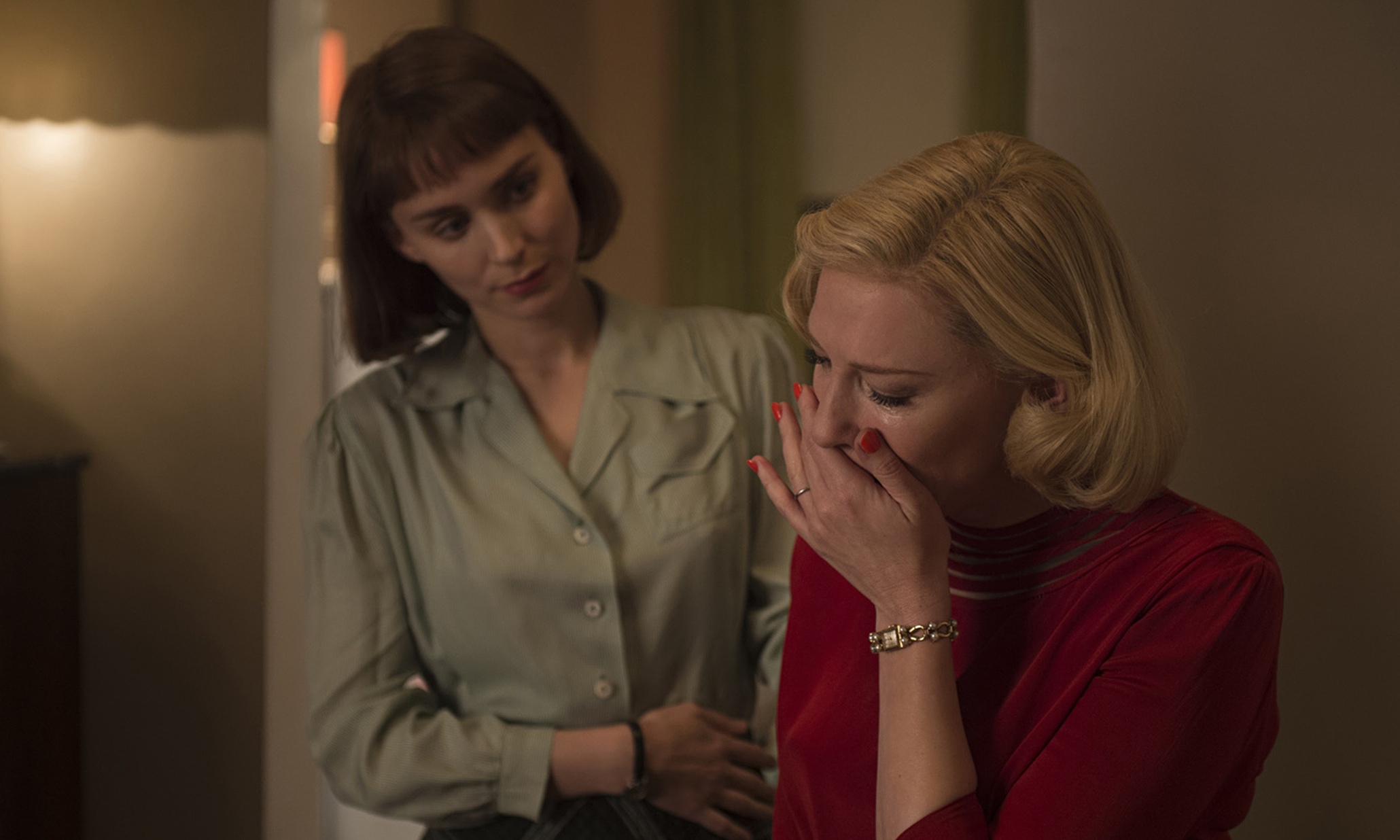
N: Looking at the nominees here, I have to say that it’s an enormous shame Charlie Kaufman and Duke Johnson aren’t nominated here for Anomalisa. They adapted Kaufman’s radio play by altering certain components to suit a cinematic medium, but nevertheless retained the spirit and the majority of the content of the original work. And the remarkable thing about Anomalisa, the film, is how intimate it is, yet also how unfettered it is in its imagination. And I feel that’s reflected in the script.
A: I agree with you. Anomalisa is sorely missing here, and if it were nominated it would be my personal pick. As for the nominees, The Big Short seems like the front-runner and is indeed an important film. It exhibits the degree to which these crooks on Wall Street essentially robbed millions of Americans of their homes. Unfortunately, it is not my pick for who I think should win. I would choose Carol, and the reason why is that the screenplay on its own creates these two nuanced women characters. But there are other characters, like Carol’s husband, who could have been written-off as some sort of two-dimensional plot device, but is instead given a tragic dimension.
N: And the thing is that if The Big Short makes socioeconomic inequity in our country as a contemporary text, I think Carol also addresses other components of inequity and inequality in a very subtle way.
A: Much more subtle than The Big Short.
N: But I would agree that Carol would be my choice as well because it utilizes these strong convictions that I think were also in Patricia Highsmith’s original novel, and these convictions are maintained right up until the ending, which is the same as Highsmith’s, and which I think ultimately restores some of the subversive element to the Happy Ending.
- Best Animated Feature

A: In past years, we haven’t been lucky enough to see all of the films in this category, but thankfully that wasn’t the case this year. And I think we can both agree on what will win and what should win, and I think you guys will be able to figure that out from our constant appraisal of it while we were talking about the Best Adapted Screenplay nominees. Speaking for myself, I have to go with Anomalisa. I’m sure the wonderful Inside Out will win, and it would be my second choice right ahead of the wonderful Brazilian film Boy and the World, which is gorgeously animated and has this melancholic nature to it. But the thing about Anomalisa is that it isn’t an animated film for children. And here in America we equate animation to children’s entertainment when that’s not always necessarily the case. But because you can convey a particular tone more precisely with animation than with live-action, I think Kaufman is able to indulge even more in his stylish traits.
N: I’d also like to add a couple of things. Firstly, Boy and the World truly is a wonderful little gem, not simply because it’s about social activism in terms of maintaining the natural world, but even more so as a scathing indictment of global capitalism, which I think is a particularly bold statement for an animated film from the West to make, particularly one that’s aimed at children. Finally, the last thing to say about Inside Out is that while I think it’s a good Pixar film, what prevents me from making it my personal pick in spite of my admiration for it is its reliance on tropes and archetypes that have been present in other works by Pixar. So even though it has some enjoyable set pieces and wonderful characters, it does fall into some predictable patterns. However, with Anomalisa, what’s refreshing is how it sets up certain archetypes of its own, notably that of the self-loathing male protagonist enlivened by what appears to be a Manic Pixie Dream Girl, and consequently explores the humanity behind these archetypes and grants an agenda for all of its characters.
- Best Film Editing

N: I have to go with Mad Max on this one, because this is very much a film that is dependent on its editing. It’s very flashy, almost flamboyant in its rapid editing, but I think it serves the film rather than detracts from it. And it’s a testament to George Miller and his editor that they know how long to hold onto a shot so as to give the audience enough clarity to understand what’s going on, where the characters are in relation to one another, and what is at stake, from foreground to background. While the editing may have the effect of compressing space, I think it has the opposite effect of actually opens up the cinematic space and offering the audience a clearer vision of the world they are witnessing. And we have seen so many contemporary action directors mishandle this approach that it’s a breath of fresh air to see it done so masterfully here.
A: I hate to sound like a parrot here, but I am in agreement with you here. What I wanted to add is that not only is the editing excellent because it contributes to the adrenaline and tension of the film, but also because Miller and his editor, who is also his wife, actually, know when to allow the audience a breath of relief from the visual onslaught that we’re subjected to.
- Best Cinematography
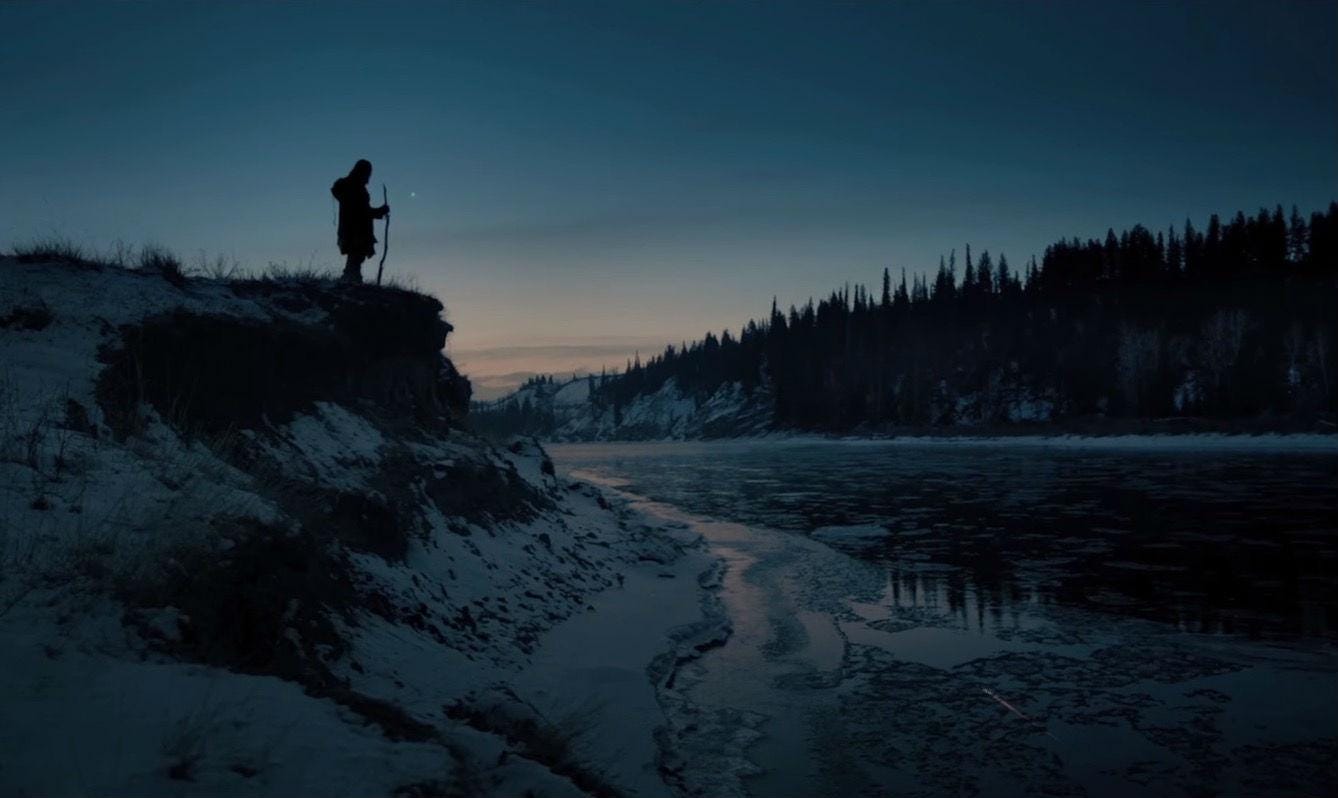
N: This is a surprisingly difficult category to pick from because all of these artists have produced some truly impressive work. We could talk about them for a while, but I think Emmanuel Lubezki is going to achieve what I don’t believe has ever been done before, which is winning for a third straight year, this time for The Revenant. And whatever misgivings I have with the film, I cannot fault its cinematography, particularly in the way Lubezki utilizes natural lighting and fluid tracking shots that have almost become his signature since his first collaboration with Terrence Malick. But if I had to maybe list one other person that deserves recognition, it would be Roger Deakins for his work on Sicario, primarily because it is both beautiful and ugly in equal measure. It’s one of the most jaundiced-looking films of last year, and yet it remains so hypnotic, particularly during its climax, that you cannot look away from it. And that’s because you’re watching the work of a master.
A: Deakins is a master, and it’s remarkable that he’s never won an Oscar before. But I do think I have to go with Lubezki, not because he will win but because he should. Not only is he able to use natural light like it’s second-hand, but because he’s able to create this transporting environment that puts the audience there in the woods with DiCaprio, in the bitter cold that is almost ethereal. It’s truly remarkable.
- Best Production Design

N: I think this is going to be a pretty easy one for both of us in saying that we’re both leaning towards Mad Max. Am I off the mark here?
A: No.
N: Oh, good. I was worried that you were going to pick The Danish Girl.
A: Well, the thing about Mad Max is that while it utilizes only a select numbers of vehicles as its “sets” against a giant desert backdrop, I think the reason we’ve both gravitated towards the film is because the cars themselves are so immaculately detailed that they are all completely unique and, most incredible of all, actually operational!
N: That’s amazing.
A: But there are also other sets as well, primarily the catacombs in The Citadel where Immortan Joe lives. They are detailed enough that there’s this pervasive feeling that there is a world that exists beyond what we as the audience are seeing.
N: Yes, absolutely. I have nothing more to add except to say how much of a shame it is that Crimson Peak is absent here. I would have loved to see the work done for that film honored with a nomination here, because that house, the basement…
A: That bathroom.
N: Yes! I mean, my goodness gracious, right down to that spa where a certain character is [redacted] by [redacted]. Needless to say, you won’t look at your bathroom sink the same way again.
- Best Costume Design

N: Again, I am probably going to have to lean towards Mad Max, but I would like to highlight the work done for Carol. It is deceptively simple yet immensely important to the film’s ultimate impact. For example, when Carol herself makes her entrance, in that fur coat and pink hat, the audience becomes aligned with Rooney Mara’s viewpoint and we, along with her, are bewitched by this woman, and that is due in no small part to the fur coat and pink hat that Carol is wearing. The differences between the characters, say in terms of class, are reiterated by the costuming, but more importantly the costuming utilizes key colors like pink and green all reaffirm the manner in which these characters are connected to their respective environments.
A: I think Mad Max stands a very good chance at winning the award. But actually, Carol is my pick for Costume Design because these costumes play a huge role in defining who these characters are. It’s interesting how the costumes reflect the social statuses of these characters and, furthermore, help create a heightened reality without too much self-awareness.
- Best Makeup and Hairstyling

N: I think this will be a fairly close race, but if I had to hazard a guess I would say that Mad Max stands a chance of winning because of it’s theatrical makeup. The Revenant also utilizes makeup effectively, but in a way that shows more the effect the physical terrain has on its characters, including DiCaprio and poor Tom Hardy who has perhaps one of the most unfortunate bald spots in recent cinema here.
A: Also, I just want to say that the scars and wounds that DiCaprio carries from the bear attack are vivid details. But I do think Mad Max should win because it operates not only as an establishment of culture among Furiosa and the War Boys with their war paint, but also with Immortan Joe who looks positively ghastly and on the verge of death.
- Best Live Action Short Film
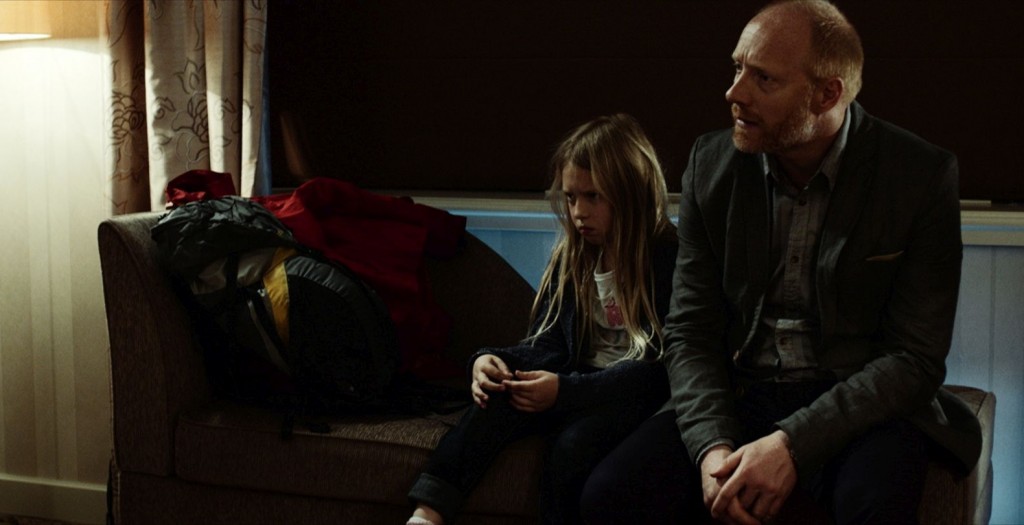
N: Before I saw the shorts, I learned that Ave Maria was seemingly the front-runner. Having seen them all, I would be completely surprised if it did end up winning because I think it’s easily, far and away, the weakest of the pack here. If it does win, it will be one of the most middling live-action Oscar shorts in a long time. It wasn’t dreadful, but it was unexceptional. And if it does win, it will only do so on the basis of catering to a contentious topic in international politics that is still relevant today, but it doesn’t say or do anything compelling with such a tumultuous crisis. At least West Bank Story took the Israeli-Palestinian conflict and turned it into a musical. This isn’t even that funny.
A: Not only that, but it was between two feuding restaurants. I know there are pundits that are saying Ave Maria is the front-runner, but I think Stutterer stands a chance of winning as well. It’s a feel-good comedy about a man who is incapable of expressing himself without stuttering. It’s well-done and sweet, and it wouldn’t surprise me if it won. But if we were voting, I’m sure you and I would pick Everything Will Be Okay. It’s one of the heavier films in the group, but the execution is so assured and confident that it rivals feature-length contemporaries.
N: Well, not only that, but when you compare it to the other shorts, you notice how they all, for lack of a better phrase, show their hands early on in their running times. You know precisely what sort of films you’re going to be watching in the first minute. But with Everything Will Be Okay, you have an establishment of mood while still remaining uncertain as to what the plot is, who these characters are, and where everything is going. It opens with a father who picks up his daughter to spend a day with her. And this opening just focuses on the father pacing outside of his ex-wife’s house. But I think it likens to the best work of the Dardennes in the way it establishes this unnameable tension or anxiety without explicitly revealing it to us, at least at first. And as the film progresses, our awareness and understanding continues to grow until the devastating closing moments. Of the five, it is easily the masterpiece.
- Best Animated Short Film

N: I think the animated shorts are in a similar predicament where only one or two truly masterful films stand out against mostly mediocre work. They are Richard Williams’ Prologue and Don Hertzfeldt’s World of Tomorrow. And the thing is, Richard Williams is one of the premier masters of animation in the world who has shown his craft over the course of half a century, from The Little Island to this, which is ostensibly the prologue to a film that may or may not ever see completion.
A: His working title is “Will I Live to Finish This?”
N: It’s good he has a sense of humor about it. But even if it’s never completed, it’s a great thing that we have these six minutes, because they are six of the most conversely lovely and swiftly brutal minutes I saw in any film from last year. It’s absolutely disarming how one moment can leave you in awe of the animation, and then the next leaves you shocked by the horrific violence. The only thing that prevents me from naming it as the best is because I think it’s so clearly a prologue to a larger work. So the one that I would choose, and the one I actually think will win, is Don Hertzfeldt’s World of Tomorrow because it’s a fully complete, little miracle of a film. If were talking about both shorts and feature-length films in the same league, it would be one of the very best of last year. It’s one of the most original science-fiction films I’ve ever seen, it’s a beautiful, funny, very poignant and often painful look at mortality that is uniquely Hertzfeldtian. If it’s not his masterpiece, I think it’s nevertheless more than worthy of earning it’s auteur’s first Oscar.
A: It’s funny that you use the term “Hertzfeldtian”, because I think when you see this film, you immediately recognize the mark of its maker. It would be my pick as well, although I also loved Prologue. I think it’s commendable that Hertzfeldt can explore themes like our attachment to technology and even our own inevitable apocalypse, but with so much comedy and pathos. It really is a terrific short, though I fear it may be upset by Sanjay’s Super Team, which screened with The Good Dinosaur.
- Best Documentary Short Film
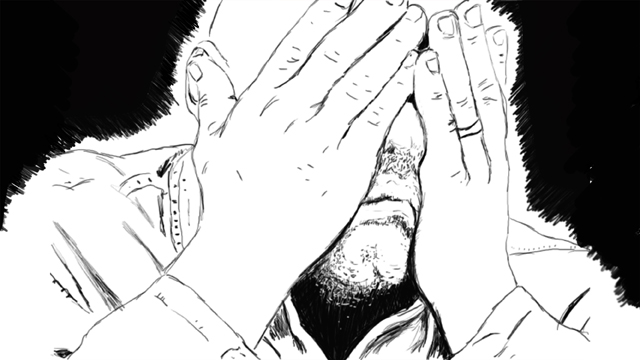
N: Now I haven’t seen any of the films here, so I’m just going to let you take the reins on this one. I do notice one about Claude Lanzmann, which seems extremely fascinating since he’s one of the most important figures in documentary filmmaking, particularly for Shoah which this nominee seems to be about.
A: Yes. It actually documents his process of making Shoah and the stress he underwent while making the film, as well as some personal background on him. And I think that will win because of the reputation of Shoah as one of the finest documentaries of all time which was infamously snubbed by the Academy on release. Plus it’s about filmmaking and the Holocaust, two topics which the Academy loves, that essentially go together like peanut-butter and jelly. But I would love to mention Last Day of Freedom, which stands out from the rest precisely because it is animated. It’s about a man whose brother always struggled throughout his life, from a car accident to dropping out of school and serving in Vietnam, eventually until he murders a woman and how our chief figure decided to turn him into the police and how this decision haunts him to this day. I saw it with a packed audience, and by the end I could hear the audience sniffling and crying. I was crying. It was so devastating, and it doesn’t leave us with any easy answers by the end.
- Best Documentary

N: I haven’t seen many of the documentaries, unfortunately, but I don’t know if anything I see here is as good as The Look of Silence. Much like Last Day of Freedom, it is an intensely tragic film. In fact, the other film I have seen, Amy, is deeply sad as well, albeit in a vastly different manner. I think that will because it is a very well-known story and it is a good film. However, I think Joshua Oppenheimer’s film taps into a political struggle that many in America are not familiar with, a conflict that resulted in part due to the Cold War. But the film taps into a larger theme of what happens when a culture by and large revises its own history and how the members of a community, from a local to a global level, attempt to eradicate the past and the consequent effect this has on those still suffering from the past. It’s captivating, often deeply frightening work.
A: I’ve actually seen all of the documentaries here, but my pick would also be The Look of Silence for the same reasons you list. I also love how the film doesn’t play any music, nor does it employ too many overtly flashy tricks in presenting its subject matter. It’s very straightforward. But it’s also quite compelling and disturbing and deeply sorrowful.
N: And it’s worth mentioning that a good portion of the crew that worked on the film chose to remain anonymous for fear of reprisal from their government. That in itself is an unnerving testament to the level of political corruption that’s still going on in their part of the world, as well as the necessity of this film’s existence.
A: As well as the courage of these crew members.
- Best Foreign Language Film

N: This is one category where, surprisingly, I have seen none of the films here, so I will leave you to talk a little about the films here.
A: Well I’ve seen three of them, and the clear front-runner as well as my choice is Son of Saul. It tackles the Holocaust in a manner that sets it apart from others in the respect that, where those films would feel sorrowful or intense, this feels a lot like a horror film. It’s shot with a very small depth of field, and the effect is one in which our perspective is limited to that of the main character. So with the violence or chaos that happens around him, you are only able to form an incomplete picture as is he. And that’s what makes it all the more terrifying.
- Best Original Score

N: I think this is Ennio Morricone’s year to win, which is irresistible because for half a century he’s produced some of the greatest film scores of all time, from Leone’s Spaghetti Westerns to Days of Heaven. The man’s work is truly peerless, and the only person in this category who has had as much of an impact as he is John Williams. However, if I were to choose the winner, it would be neither of them. Instead, I would choose the great Carter Burwell for Carol, and the reason why is because it is used sparingly, but when it is utilized it works in tandem with cinematography and costume design to cast the film’s hypnotic spell. But Burwell’s score by itself is mournful yet in constant momentum, and it would be wonderful to see him recognized for years of superb work here.
A: He is a terrific composer, and it’s remarkable that this is his first nomination. But my pick would be Ennio Morricone, and the reason why I choose him is because the score is not only a throwback to his past scores but it also works effectively with the film. It sounds like a score to a Western, but it’s also quite foreboding and almost sounds like a horror film.
- Best Original Song
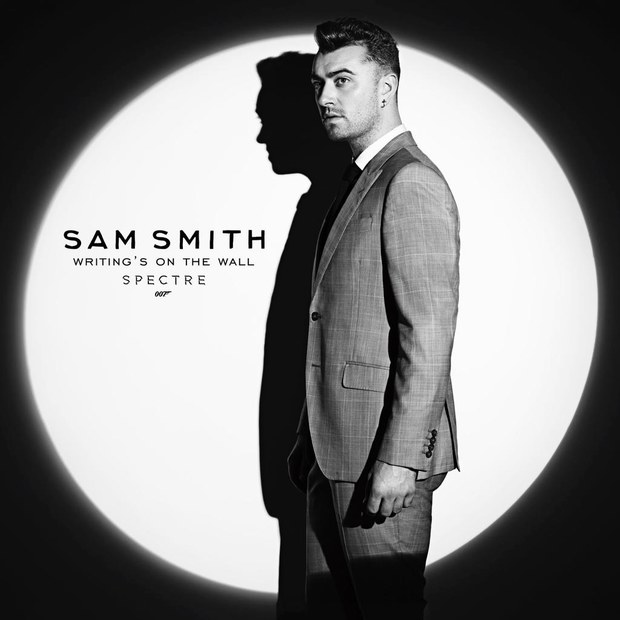
N: I would just like to congratulate the makers of Fifty Shades of Grey for securing an Oscar nomination. That’s certainly an achievement when compared to the countless films that were left out in the cold. But all snark aside, I would say, out of a field of fairly unremarkable songs, Sam Smith’s song for Spectre is probably the front-runner. Though I will say that if you haven’t heard Radiohead’s rejected song for the film, you should absolutely seek it out.
A: The front-runner, I think, is actually the song Until it Happens to You from The Hunting Ground. It’s about the series of on-campus rapes that have been happening for too long in this country, and was written by Diane Warren and Lady Gaga. Of the ones that are nominated, most of which are adequate, I would pick Simple Song #3 from Youth, which is the most effective in regards to how it’s used in the film’s story.
- Best Visual Effects

N: There doesn’t seem to be a clear front-runner in this category. While you have Mad Max, which mixes practical effects with computer-generated effects, Star Wars certainly gives it a run for its money by integrating those traits as well. And of course, The Revenant has that bear, which as it turns out wasn’t really played by Jonah Hill. Truth be told, I would opt for Mad Max as a personal preference because it’s use of optical tricks were not only commendable but also a refreshingly effective throwback to a more retro incorporation of special effects that is still fairly easy to miss.
A: I would also choose Mad Max, and having seen some behind-the-scenes featurettes on the making of the film, it’s truly remarkable seeing them splice together discrete shots of explosions and stunts that are all seamlessly integrated that you would never guess they were shot separately. My second choice would be Ex Machina for the way Alicia Vikander’s body suit helped turn her into a machine.
- Best Sound Mixing and Best Sound Editing

N: Just as a quick primer for those not in the know, Sound Mixing is what’s recorded on set and Sound Editing is generally what’s crafted in Post-Production. Correct?
A: Usually. Sometimes mixing is also done in the post-production phase, such as the selection of particular sounds that weren’t there when you recorded on set. Sound Editing can be the creation of sounds, such as the light sabers in Star Wars.
N: Well in that case, I would lean towards Mad Max: Fury Road because I think it will help the film sweep some of the technical categories and the editing in particular, the diversity of cars revving up would seemingly become a little redundant after a while, but they surprisingly don’t. I thought the sound mixing in Mad Max was great as well, but it wouldn’t surprise me if The Revenant won here for the way it mixed sounds of nature as a way of enveloping the audience.
A: I would lean towards Mad Max for both categories, but I can very easily see it being split between the two films. I will say this about The Revenant; I love the way they utilized sound in the film, from birds singing to twigs snapping. It really involves you in this world and makes it come alive. And that’s the thing about sound; it’s not always about what’s noisiest, but about what draws us in the best.
